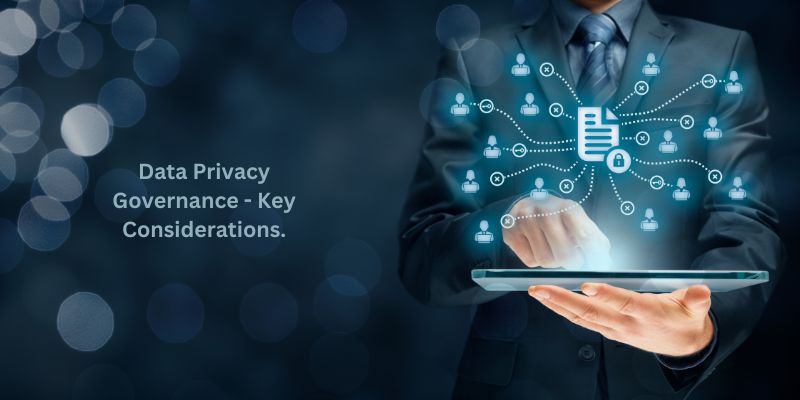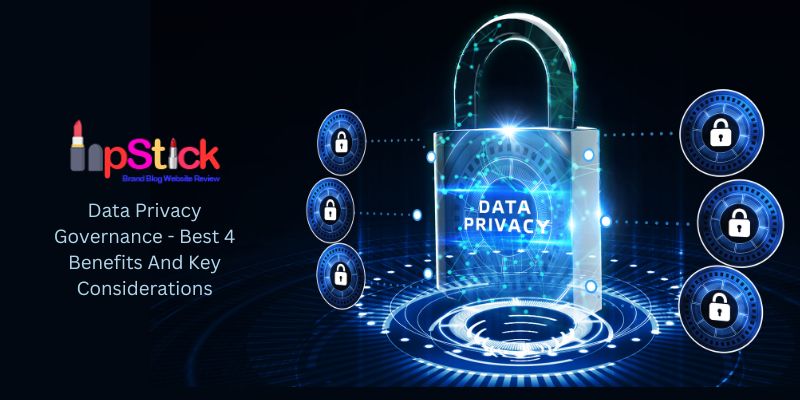Securing personal data in your organization requires creating an adequate governance structure for your privacy program. In this article, with lipstickbr.com, let’s find out some useful information about data privacy governance!
1. Benefits Of Data Privacy Governance.

1.1 Aiding compliance with data privacy laws.
An effective governance system ensures that your company complies with all of its legal responsibilities under the applicable data protection legislation. This framework enables your organization to identify its compliance duties and chart a course for compliance. Additionally, you may establish a framework for privacy accountability to instill a culture of data protection inside the organization.
1.2 Enhancing the standing of brands.
A successful privacy program also improves the standing of your company. You face the danger of facing harsh client reaction if you abuse consumer data, which will harm your company’s reputation. Uber Technologies Inc.’s 2016 data breach and accompanying cover-up is one example, which caused a 141.3% decline in the company’s customer perception rating. This market share was substantially reduced by competition from Lyft Inc. Your organization would be protected from such dangers by a complex data privacy governance system.
1.3 Implementing a preventative strategy for data protection.
A basic approach to privacy is to simply follow the requirements of the laws and regulations governing data protection. When an effective governance structure is in place, the organization moves from merely complying with the law to actively embracing and benefiting from data privacy. A proactive strategy for data security allows you to customize your compliance plan to the specifics of your company. Additionally, it enables you to anticipate possible data dangers and use sensible mitigation techniques.
1.4 Raising operational effectiveness.

Improved operational efficiency across all company activities that process data is a benefit of excellent data privacy governance. A privacy team is in the best position to pinpoint and reduce wasteful expenses brought on by ineffective data processing. They can achieve this by reducing role duplication, getting rid of redundant data that raises storage costs, etc. The team would optimize work flow while also saving money for your company.
2. Data Privacy Governance – Key Considerations.
2.1 The purpose and vision for privacy.
An aspirational declaration that outlines the organization’s goals for data security is known as a privacy vision statement. The company’s leadership conveys fundamental privacy ideals to other organization stakeholders through the vision statement.
A concise statement outlining the main purposes of a data privacy framework is known as a mission statement. It also outlines some of the fundamental ideas that the framework is built around.
Both of these declarations establish a privacy culture within the company that facilitates compliance. They gain the rewards of trust and loyalty when they make clear how they treat the public’s personal information through public messages like privacy rules.
2.2 Data management.
You should carefully analyze your organization’s data governance structure while developing your data privacy governance architecture. Data governance is a framework that establishes the types of data that are handled in your company, how they are managed, who handles them, how they move across the organization, etc.
Since personal data is the main concern when it comes to privacy compliance, your data privacy governance structure should show that you have a thorough understanding of how your company processes data. You may trace the footprint of data from its collection and recording through its erasure and disposal using data maps and other tracking tools. In doing so, you create a comprehensive picture of how your organization interacts with personal data, which serves as the foundation for your data privacy governance program.
2.3 The purpose of privacy governance positioning.

Do not forget to take into account how your privacy function will integrate with your present internal and external reporting systems. To manage critical data processing processes, data privacy governance needs to be properly based inside the company. To give an example, decentralized privacy compliance may be required in large organizations with several department heads in order to include all of the divisions that handle personal data inside the organization.
In contrast, a small or mid-sized business could centralize the task by giving it to one person, like the CEO. By doing this, any orders, regulations, or protocols can be readily monitored and applied across the whole organization.
Government agencies and multinational enterprises, among other organizations with strict legal requirements, will need to reconcile their privacy framework with their legal reporting duties.
Basically, creating a data privacy governance framework necessitates having a thorough grasp of how stakeholders interact upstream and downstream as well as the decision-making and problem-solving processes inside your organization.
2.4 Resourcing the role of privacy governance.
Establishing a Privacy Team: The next stage is to form a team after conceptualizing the privacy governance structure and outlining its goals. A single person may oversee the entire role, or an inclusive team may handle it, depending on the needs of the organization. The team may be made up of experts in data protection or advocates of data privacy from other departments.
The data privacy governance team’s tasks and responsibilities are as follows: The responsibilities and roles of your privacy team should also be taken into account. It’s critical to outline the duties and responsibilities of the data protection team in order to prevent future errors or misunderstandings, the cost of which might be disastrous for the company. Every organization has a different structure and set of duties and responsibilities for the privacy team.
Conclusion
Without a governance strategy in place, starting a privacy compliance journey is pointless. For the greatest compliance outcomes, the governance framework you select must be well-structured and appropriately adapted to your organization. and there are 4 key considerations you should follow including: The purpose and vision for privacy, Data management, The purpose of data privacy governance positioning, Resourcing the role of privacy governance.
I hope you found the information in this article on data privacy governance useful. Have a good day!

